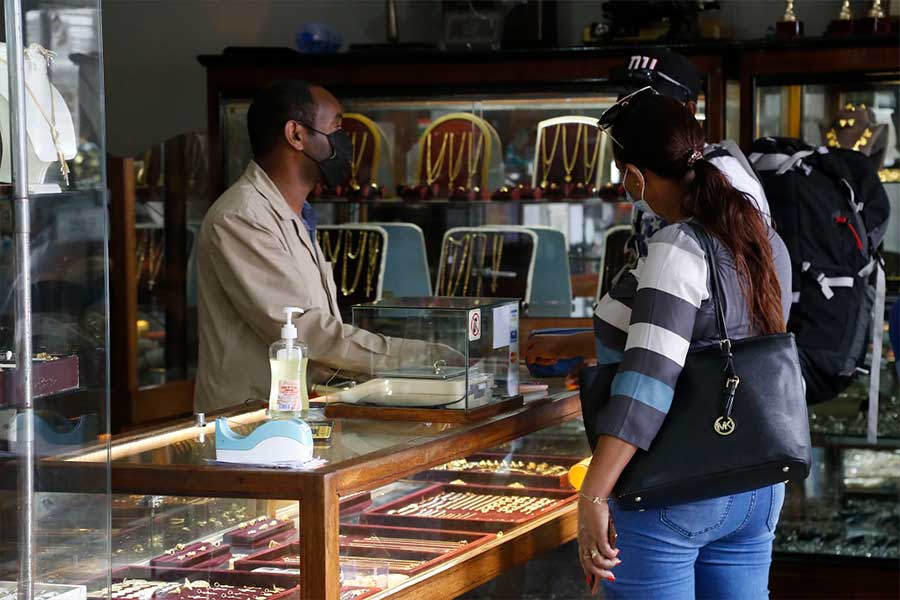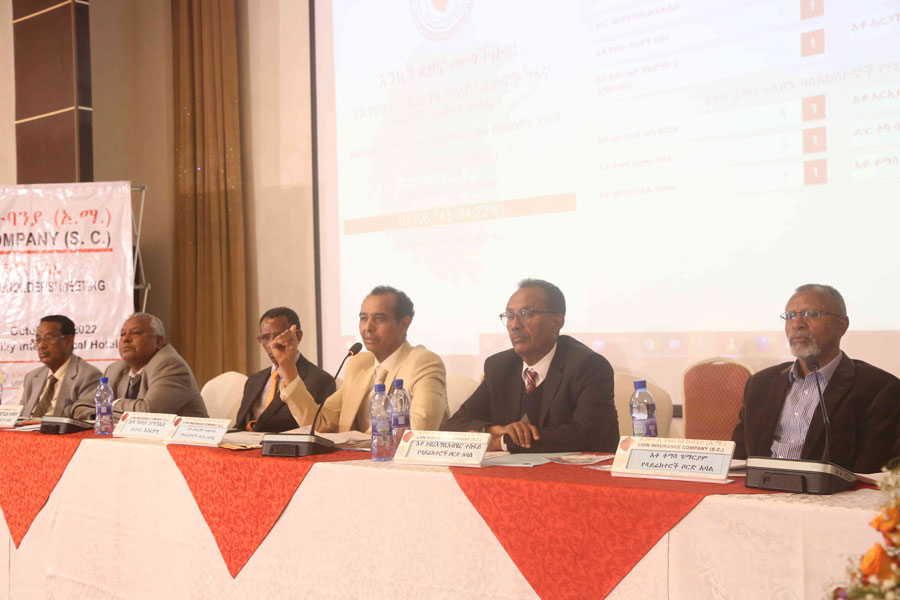
Radar | Jul 27,2019
An American medical manufacturer, Beckman Coulter, installed two new pieces of medical laboratory equipment at Black Lion Specialised Hospital valued at two million dollars.
The two laboratory facilities are equipped with a capacity of performing 1,600 tests an hour and are fully sponsored by Beckman Coulter. Delta Instrument Technology, a local agent of Beckman Coulter, will provide training services to workers and maintain the equipment.
The equipment was granted through a three-year framework agreement with the American firm that will supply the reagents required to run the tests, according to Daniel G. Michael (MD), advisor to the Minister of Health.
"This framework agreement is believed to solve the maintenance, disruptions and shortages of reagents in the health facilities," tweeted Amir Aman (MD), minister of Health.
The framework agreement envisions the procurement of 500 machines from European and American manufacturers that will be distributed across hospitals and health centres throughout Ethiopia, which has 300 government hospitals, of which 13 are in Addis Abeba.
The first 50 laboratory machines have already been installed at eight different hospitals, including the two at Black Lion, where the haematology and chemistry laboratories will each receive one. Six other manufacturers supplied the remaining 48 laboratory machines.
Black Lion, located on Zambia Street, is the largest teaching and referral hospital in the country and provides admissions, treatment, surgical services and employs 3,400 staff. It processes approximately 370,000 to 400,000 patients a year, treats around 80,000 patients in its emergency department and retains 800 hospital beds, 169 specialists and 65 non-teaching physicians.
The hospital is affiliated with the Addis Abeba University School of Medicine and serves as a training centre for fellows, postgraduates, undergraduates, medical students, dentists, nurses, radiographers and laboratory technicians.
The framework will solve the problem of the shortage of reagent supplies and equipment maintenance, as well as improving medical tests, according to Ebba Abate (MD), director general of Ethiopian Public Health Institution.
Black Lion faces the problem of outdated and dilapidated laboratory equipment that has suffered from deferred maintenance, according to Dawit Wondimagegn (MD), the Hospital's CEO.
"The hospital's laboratory services were inconsistent, and some tests were not even conducted due to machine failures and supply shortages," he said.
The remedy for the hospital has been to send patient samples to EPHI, which conducts the tests at a premium cost. Testing a sample costs 25 Br at the hospital, but EPHI can charge 35-40 Br, according to Dawit.
The new laboratory equipment gives an excess capacity to Black Lion, which carries out approximately 600 tests at a time. The two laboratories boost the capacity of the hospital to 1,600 tests an hour.
"The excess capacity can be used to conduct tests for other clinics and hospitals, both in the private and public sectors, so as to utilise the resources well and to earn some extra income for the hospital," said Dawit.
Though the laboratories were inaugurated early last week, the equipment was installed four months ago, according to Dawit.
"The reagents came very late," he said, "and we fear such delays will occur afterwards."
The Ministry of Health is planning to install 210 of the 500 pieces of laboratory equipment in regional states in a second phase implementation effort.
Oromia Regional State, which runs 81 government-run hospitals, is designated to receive laboratory machines for 41 hospitals in the first phase and 40 hospitals in the second phase.
Basic laboratory equipment facilities are available in different hospitals, but the shortage of reagents to conduct the tests have rendered the facilities non-functional, according to Abdulkadir Gelgelo, clinical service director, Oromia Health Bureau.
"The region procures reagents from a local private firm, Biftu Adugna, but the supplier could not work with the regional states due to the prevailing forex crunch," Abdulkadir said.
PUBLISHED ON
Jun 08,2019 [ VOL
20 , NO
997]

Radar | Jul 27,2019

Agenda | Oct 10,2020

Films Review | Jul 06,2019

Radar | Dec 26,2020

Radar | Mar 27,2021

Radar | Dec 24,2022

Radar | Apr 01,2024

Radar | Nov 20,2021

Fortune News | Feb 25,2023

Fortune News | May 29,2021

Dec 22 , 2024 . By TIZITA SHEWAFERAW
Charged with transforming colossal state-owned enterprises into modern and competitiv...

Aug 18 , 2024 . By AKSAH ITALO
Although predictable Yonas Zerihun's job in the ride-hailing service is not immune to...

Jul 28 , 2024 . By TIZITA SHEWAFERAW
Unhabitual, perhaps too many, Samuel Gebreyohannes, 38, used to occasionally enjoy a couple of beers at breakfast. However, he recently swit...

Jul 13 , 2024 . By AKSAH ITALO
Investors who rely on tractors, trucks, and field vehicles for commuting, transporting commodities, and f...

Oct 11 , 2025
Ladislas Farago, a roving Associated Press (AP) correspondent, arrived in Ethiopia in...

Oct 4 , 2025
Eyob Tekalegn (PhD) had been in the Governor's chair for only weeks when, on Septembe...

Sep 27 , 2025
Four years into an experiment with “shock therapy” in education, the national moo...

Sep 20 , 2025
Getachew Reda's return to the national stage was always going to stir attention. Once...